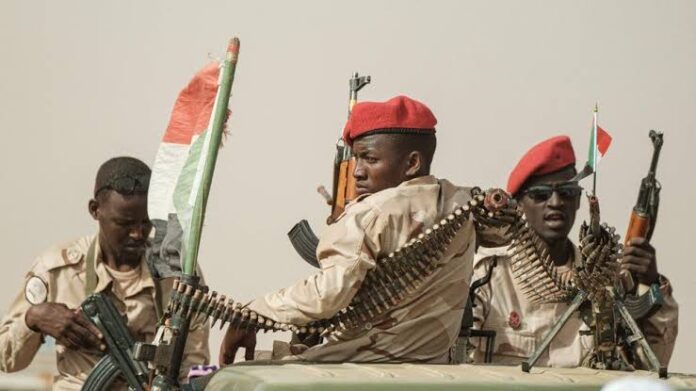The United States announced visa sanctions on an unspecified number of South Sudanese officials. These sanctions target individuals who have been accused of obstructing the delivery of humanitarian aid to South Sudan, a country already struggling with poverty and instability. The decision to impose sanctions highlights the ongoing challenges in the region and the frustration of international actors like the United States with the slow progress towards peace and stability.
Humanitarian Crisis and Obstruction
South Sudan has faced immense challenges since gaining independence from Sudan in 2011. The country has been plagued by corruption, ethnic violence, and civil war. In 2018, a peace agreement was signed, ending five years of civil war. This agreement was supposed to pave the way for a new era of peace and cooperation. However, the reality has been far from this vision.
The United States has expressed deep concern over the failure of South Sudan’s transitional government to meet its obligations under the 2018 peace agreement. A key element of this agreement was the establishment of an “enabling” environment to allow for the delivery of humanitarian assistance. However, the government has not fully implemented this aspect, leading to severe consequences for the people of South Sudan.
The visa sanctions are a direct response to this failure. By targeting individuals responsible for obstructing aid, the United States hopes to pressure the South Sudanese government into taking meaningful action. The sanctions mean that these individuals may be found ineligible for entry into the United States, a significant consequence for those who often have ties or interests abroad.
The Grim Reality of Sudan War: Unchecked Arms Flow from Turkey and UAE Amidst Embargo
Impact on South Sudan’s Political Landscape
The peace agreement of 2018 aimed to create a power-sharing government and set the stage for a political transition and elections. Unfortunately, key aspects of the agreement remain incomplete, including the creation of a national constitution. This has led to delays in the political process and uncertainty about the country’s future.
In August 2022, South Sudan’s leaders agreed to extend the transitional period for another 24 months, pushing the deadline to February 2025. Elections have been tentatively scheduled for December 2024, but there are doubts about whether these will take place as planned. The incomplete implementation of the peace agreement and the continued instability in the country have raised concerns about the feasibility of these elections.
The Grim Reality of Sudan War: Unchecked Arms Flow from Turkey and UAE Amidst Embargo
The visa sanctions imposed by the United States add another layer of complexity to South Sudan’s political landscape. While the sanctions target specific individuals, they also send a broader message about the international community’s dissatisfaction with the pace of progress in the country. This could have ripple effects, influencing both domestic politics in South Sudan and its relations with other nations.
Ongoing Struggles for Peace and Stability
South Sudan’s journey since independence has been marred by conflict and unrest. The country’s leaders have faced immense challenges in trying to build a stable and prosperous nation. The peace agreement of 2018 was seen as a significant step forward, but the obstacles remain formidable.
US Imposes Sanctions on Sudan’s Paramilitary RSF Commanders Amid Darfur Crisis
The obstruction of humanitarian aid is just one of the many issues facing South Sudan. The country’s infrastructure is in shambles, and many people still live in extreme poverty. Ethnic tensions continue to simmer, threatening to erupt into violence at any moment. The failure to fully implement the peace agreement has only exacerbated these problems.
The international community, including the United States, has played a crucial role in supporting South Sudan. However, patience is wearing thin, and there is growing frustration with the lack of progress. The visa sanctions are a clear sign that the United States is no longer willing to tolerate the obstruction of aid and the slow pace of reform.
For the people of South Sudan, the stakes are incredibly high. The country’s future hangs in the balance, and the actions of its leaders will determine whether it can overcome its challenges or continue to struggle. The visa sanctions imposed by the United States are a reminder that the international community is watching and that there will be consequences for those who stand in the way of progress.
In conclusion, the situation in South Sudan remains precarious. The visa sanctions imposed by the United States are a response to the ongoing challenges in the country, particularly the obstruction of humanitarian aid. While the sanctions target specific individuals, they also send a broader message about the need for meaningful progress. The road ahead for South Sudan is uncertain, but the pressure from the international community could be a catalyst for change.


